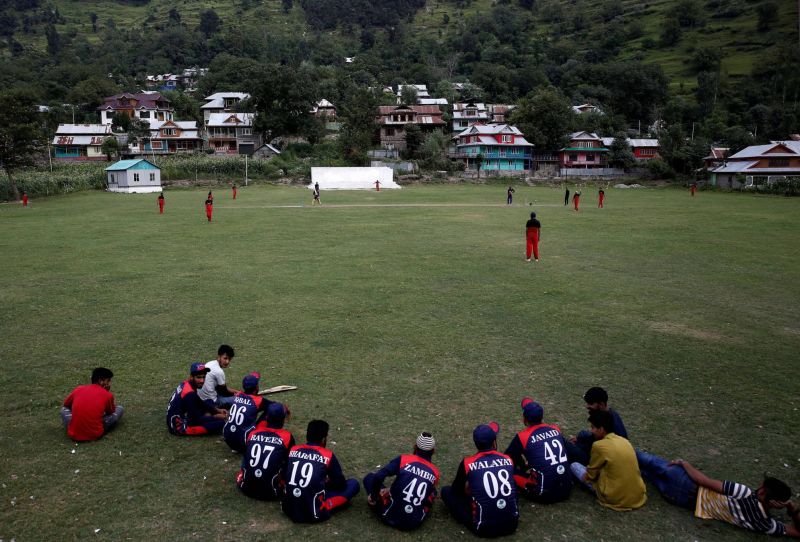75 years ago, the violent separation between India and Pakistan also gave rise to one of the fiercest sporting rivalries on the planet: cricket matches between the two countries. “The match between India and Pakistan touched the feelings of millions of people,” said Wasim Akram, one of the greatest cricketers of all time, who is the commentator. “If you perform well, you become a hero… If your team loses, you are portrayed as a villain,” he continued.
The match also helped ease military tensions between the two countries, who have fought four wars since their independence from the British Empire, when Britain divided the Indian subcontinent into India and Pakistan two independent states, 14 and 15 August 1947. In 1987, as troops assembled along the border, General Mohammad Zia-ul-Haq, the head of the Pakistani army, visited New Delhi unexpectedly, apparently to attend a match between the two countries. This shrewd maneuver has led to a meeting with Indian Prime Minister Rajiv Gandhi and tensions have eased.
But for now, the competition spills over onto the field. The two countries haven’t played the Tests – the traditional form of meetings that can last up to five days – since 2007, meeting only in a shorter format or in multi-team competitions overseas. Matches, such as the upcoming Asian Cup at the end of the month, are watched by cricket fans around the world, generating billions of dollars in revenue for broadcasters. Around 273 million spectators attended the India-Pakistan 2019 World Cup match.
India batsman Virat Kohli, here at the recent Commonwealth Games, has been selected in the T20 cricket team that will face Pakistan in the Asian Cup in late August. Both countries have played 59 Tests in their history (12 wins for Pakistan, 9 wins for India and 38 draws). Lindsey Parnaby/AFP
A “war without a shot”
“Nothing can match the India-Pakistan series, it is played on a different level,” former Pakistani prime minister and cricket captain Imran Khan, who led Pakistan to 1992 World Cup glory, said in a Sky Sports documentary. For the Chief Executive of the Pakistan Cricket Council, Faisal Hasnain, the match against India is the “mother of all matches”. “The fans want these two countries to play each other regularly, but recovery will only be possible with a thaw in relations,” he said. We can only wait and hope. »
Introduced to the subcontinent in the 18th century, cricket was mostly played by white colonial rulers, but locals learned the game by being forced to help them out on the field. After the partition, most of the Indian Muslim players emigrated to Pakistan, which had to start from scratch. In 1952, Pakistan’s first test was against India. Since then, the two nations have played 59 Tests, including twelve wins for Pakistan, nine for India, the others ending in a draw. In the One Day International (ODI) format, Pakistan also benefits, but India has won most of the matches in the shorter twenty 20 (T20). On the women’s side, India have won eleven ODIs and ten of their twelve T20s since 2005.
The advent of one-day cricket, practiced mainly at the World Cup, has only strengthened the rivalry. One commentator called their clashes “a war without gunfire”. “Sometimes the reaction from the fans is intolerable,” said former Pakistan cricket star Wasim Akram, who received death threats for withdrawing from a key final against India following injury. Meanwhile, former Indian batsman Sanjay Manjrekar missed the match against Pakistan. “He is my favorite opponent for all the entertainment they provide on the pitch with their jokes,” he said. And the fact that they are such a good team! »
Shahid Hashmi
and Faisal CAMAL/AFP
75 years ago, the violent separation between India and Pakistan also gave rise to one of the fiercest sporting rivalries on the planet: cricket matches between the two countries. “The match between India and Pakistan touched the feelings of millions of people,” said Wasim Akram, one of the greatest cricketers…

“Twitter junkie. Hipster-friendly bacon expert. Beer ninja. Reader. Communicator. Explorer. Passionate alcohol geek.”







